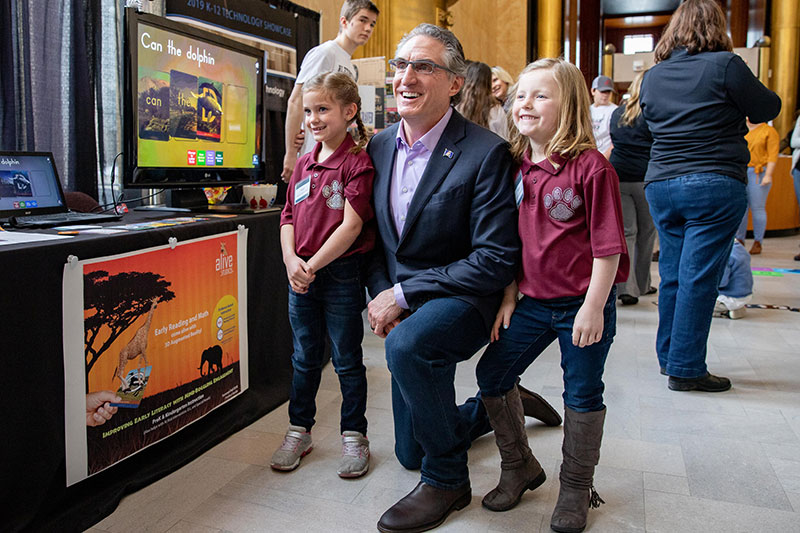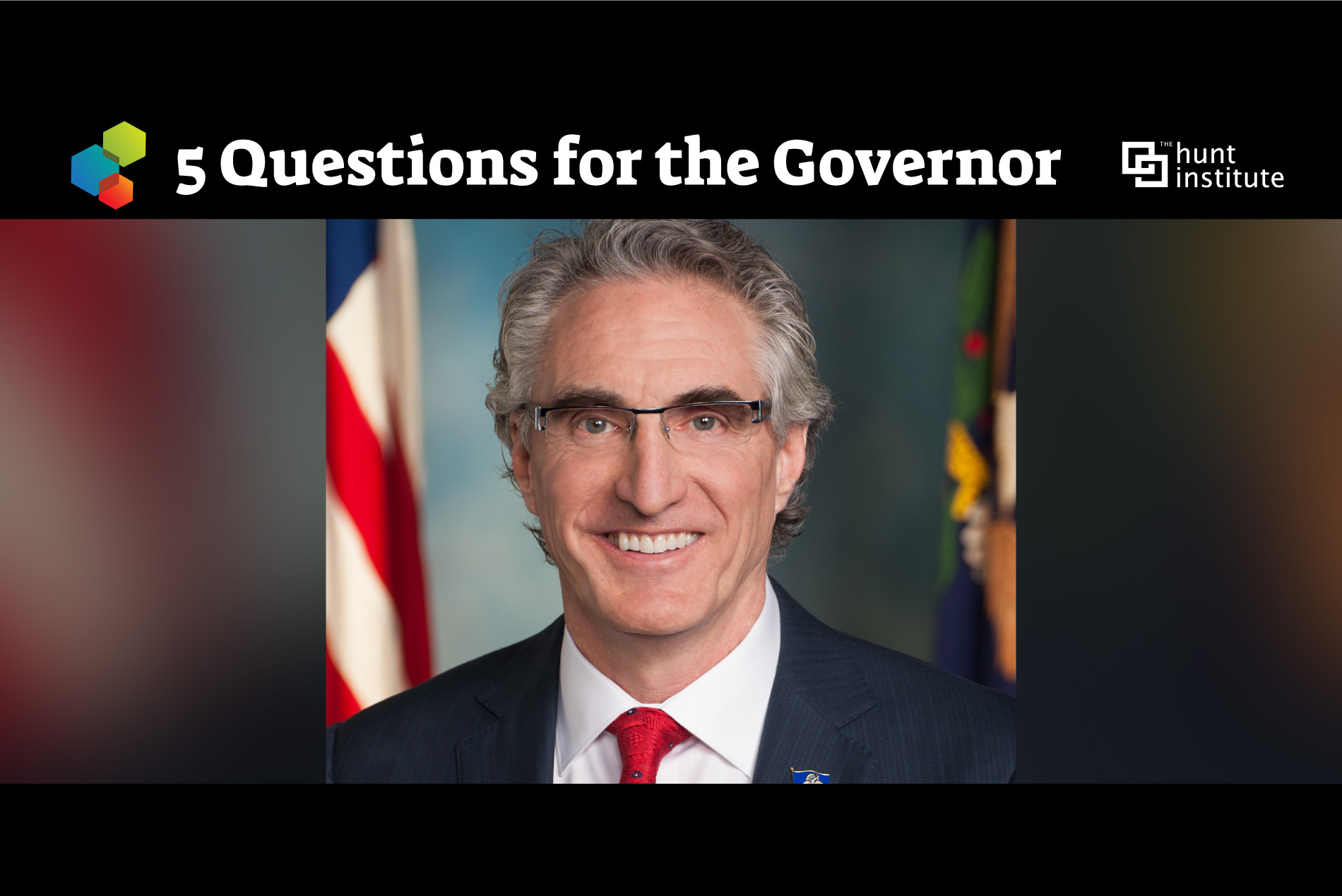Where do you go for the top news in Early Learning at the state level? Check out “5 Questions for the Governor,” where we’ll explore the top Early Learning challenges and successes in states across the nation. We’re thrilled to partner with The Hunt Institute on this series. Read them all.

1. COVID-19 has obviously presented an array of challenges to states during 2020. What is the most important lesson you’ve learned from leading North Dakota through this unprecedented time?
To put your trust in the citizens. If governments provide citizens with clear data, in a transparent manner and with the freedom to exercise personal responsibility, they will come through and make the best choice for their family and community. North Dakotans have proven this time and time again, whether through floods, droughts, other natural disasters and now a pandemic, that they care about their neighbors’ health as much as their own.
2. What are your biggest concerns for young children and their families during the pandemic and how is the state working to address them?
Over the past five months, families and children have faced an unprecedented level of disruption and adversity. Citizens across the globe have had to learn new ways to work, learn and interact. This adversity has also provided families an opportunity to re-engage in quality time together, away from distractions. Children have had an opportunity to reignite their imagination in the outdoors and focused time with their immediate family.
Working with the Department of Human Services, North Dakota acted quickly to ensure that we provided the necessary resources to support child care services. We worked with the Department of Public Instruction to guarantee every child had the food they needed to survive and thrive. Our teams are working daily to create systems and health protocols to allow our children as many opportunities for social interaction, learning and support as possible. Whether this be in socially distanced activities, traditional classrooms or virtual education, North Dakota is committed to supporting parents and families to provide healthy, safe and quality care during these trying times.
3. North Dakota was one of the very first states to provide financial supports to sustain child care providers during the outbreak. Why was this such an important priority for the administration?
4. 2019-2020 was the fourth year of North Dakota’s Early Childhood Education Program for four-year-olds. What are the major lessons learned from the program so far – and do you foresee opportunities for it to expand to serve additional children over the coming years?
The early childhood education grant program was advanced by the 2015 64th Legislative Assembly to assist ND communities with public, private, nonprofit or partnership entities offering early childhood education. While the program has been successful, we are constantly reviewing this program and others to ensure we are providing strategic support for child care to ensure the success of the industry and to address the true challenges for families in North Dakota. There are opportunities to work with the upcoming 2021 legislature to expand these services based on the feedback from families and child care providers.

5. You’re a father of three. What did fatherhood teach you about the importance of the early years?
Children in the early years have an amazing ability to use their imagination and curiosity to drive learning, relationships and a world understanding. Encouraging and embracing that curiosity is something that I instilled in my children each day. When I dropped my kids off at school every day, the last thing I would say is “Ask good questions,” and when they would come home from school, I wouldn’t ask them what they learned, but rather what questions they asked. Curiosity takes thoughtfulness, courage and humility, all of which are critical to the development of children into responsible, contributing members of society.



